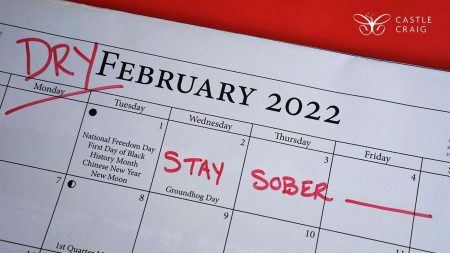Setting yourself aims and defining timelines makes your recovery journey more manageable, breaking it down into bitesize pieces. It allows you to see how much progress you have made and not to feel lost on the way.
This article will explore why setting realistic goals is so important for a successful recovery, provide practical tips on how to define your milestones and discuss the role of self-compassion in the pursuit of these goals.
What does a “Realistic Goal” Look Like?
To reap the benefits of goal setting, you need to make your goals realistic. This means that they need to be achievable objectives. Otherwise, you risk demoralising yourself or feeling like a failure when you can’t live up to unattainable standards.
One effective framework for creating achievable objectives is the SMART criteria, which stands for Specific, Measurable, Achievable, Relevant, and Time-bound. Let’s delve into each element of SMART goals and see how they can be applied to recovery.
1. Specific
When setting recovery goals, specificity is key. Clearly define what you want to achieve, making the goal as detailed as possible. Rather than a vague goal like “be healthier,” a specific goal could be “attend three support group meetings per week” or “replace [unhealthy coping mechanism] with [healthier alternative].”
2. Measurable
For a goal to be “measurable”, you need to have clear criteria for judging whether or not you have reached it. Instead of a broad goal like “exercise more,” a measurable goal could be “walk 30 minutes every day” or “complete a 5K run in three months.”
3. Achievable
Goals should stretch you but remain achievable. You should be able to complete the goal, taking into account your current circumstances, capabilities, and resources. Setting goals that are too ambitious often leads to frustration, while overly simple goals might not provide the motivation needed for growth.
Look for a balance that pushes you just beyond your comfort zone – that’s how you expand it, little by little. For instance, an unachievable goal would be to run a marathon next month without prior training. A SMART Goal is to complete a 5K run in three months after a training program that gradually increases your running time and distance.
4. Relevant
Relevance means that your goal aligns with your long-term vision and values. In the case of recovery, it means that your intermediate goals are working towards your sobriety.
5. Time-bound
Setting a timeframe adds urgency and structure to your goals. It provides a clear deadline for achievement and helps prevent procrastination. Instead of a goal like “get a job,” a time-bound goal could be “submit five job applications within the next two weeks.”
The SMART framework is a great way to set goals that are well-defined, achievable, and tailored to your unique needs.

How to Set Achievable Goals for Your Recovery
Now that we’ve established the importance of setting realistic and achievable goals using the SMART criteria, let’s see how we can apply this to your recovery journey.
1. Start Small and Gradual
Start by giving yourself small, manageable objectives. Getting in some early wins helps to give you confidence and motivates you to continue. Steps that appear more difficult can wait until you have built a strong foundation for your recovery – this gives you time to reflect upon them and work out how you want to approach them.
Starting with goals that are too ambitious can lead to frustration and a sense of failure. For example, instead of aiming to completely give up on a substance overnight, you might find it more manageable to commit to reducing it gradually. Depending on your personality and preferences, this progressive approach may allow for a smoother transition and increase the likelihood of success.
2. Identify Short-Term and Long-Term Goals
Distinguish between short-term and long-term goals to create a balanced and realistic plan. Short-term goals provide immediate targets, while long-term goals offer a broader vision for the future.
As an example, a short-term goal could be to attend two support group meetings per week, while your long-term goal would be to establish a solid support network and take part in community events related to recovery.
It is useful to combine the two: the short-term goals acting as building blocks, laying the foundation for the achievement of more significant, long-term objectives.
3. Speak to a Therapist or Counsellor
Chat with a therapist or a counsellor about your goals. They will have the knowledge and perspective to tell you whether your goals are realistic and which are the highest priority in your specific situation.
4. Regularly Evaluate and Adjust Goals
Recovery is a dynamic process, and goals may need adjustment as circumstances evolve. Take the time to evaluate your progress regularly, and don’t be afraid of adapting your goals to align with your needs, priorities, and the speed of your progress.
For example, if a goal to attend three support group meetings per week becomes challenging due to schedule constraints, adjust the goal to two meetings while finding other ways to reach out to your support system.
By regularly assessing your goals, you can celebrate successes, learn from setbacks, and make the necessary adjustments to keep on moving forward. Some find it useful to have a planner in which they write down their goals, do monthly or weekly reviews and reset their aims accordingly.
6. Approach Yourself With Compassion
Don’t forget that your goals are there to serve you. While it is important to take them seriously and have a sense of accountability, you shouldn’t beat yourself if you fail to meet a goal.
This is another reason that evaluation and adjustment are important – if you realise you have been too ambitious in your goals, give yourself a longer time or break them down into smaller pieces.
After all, recovery is a process of growth and learning, not perfection. Be compassionate with yourself, and remember that setbacks are a natural part of the journey. They help you to build resilience, learn about yourself, and tailor your recovery journey to your unique situation.
7. Take Things One Step At A Time
When you begin your recovery, you might be tempted to have a complete overhaul of your life. This is a common thing to do when we decide to seek change – you want to change everything all at once.
The problem is that setting too many goals in different directions can be overwhelming. You risk getting burnt out or struggling to complete your aims because you have spread yourself too thin.
Recovery is a gradual process, and it’s okay to take incremental steps. Take note of the changes you want to make, then pick the most important ones and work on a few at a time.

Why Goal-Setting Matters for Recovery
The recovery process is long and non-linear. It is easy to feel a little lost or overwhelmed if you don’t have a clear set of steps to follow. This is the basis for programs like the 12 Steps to Recovery by Alcoholics Anonymous, which take the wide aim of reaching sobriety and break it down into smaller aims and milestones.
Here are just some of the advantages of setting goals for your recovery:

Clarity and Direction
Without defined goals, the recovery process may feel overwhelming and aimless, making it challenging to stay committed. By breaking your long journey into smaller pieces, goal-setting provides clarity on your next steps. It helps you stay motivated because you know what you are doing and why. It takes a big, vague goal that is hard to visualise and turns it into intermediate stages that you can picture yourself doing.

Motivation and Accountability
Many of us work well when we can see signs of progress. Meeting a goal provides moments of gratification that sustain us through the tricky process of getting healthy. Specific goals help rekindle your motivation and add a sense of accountability: when you commit to a certain goal within a timeframe, you feel like you owe it to yourself to reach it.

Measuring Progress
Your goals let you see how far you have come. They provide milestones to track your progress. It’s important to celebrate every goal you attain – however small it might feel. Acknowledging victories along the way boosts confidence and reinforces the belief that recovery is something you can achieve – which you are!



